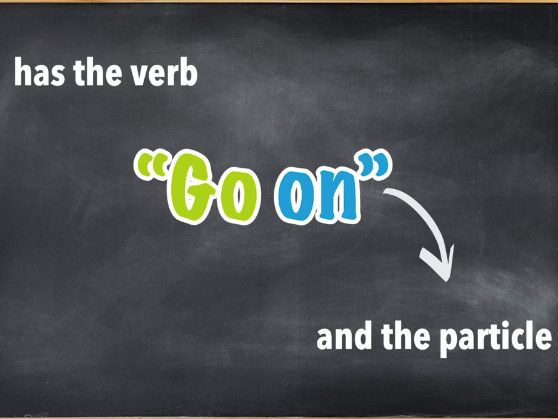This is Everyday Grammar. I'm John Russell.
这里是《每日语法》节目。我是约翰·罗素。
I recently saw a strange news story about two cell phone sellers at a local mall.
我最近看到一个奇怪的新闻故事,关于当地商场两个卖手机的售货员。
The sellers were each trying to sell phones for less money than their competitor.
销售员都争抢着要以比对方更低的价格卖手机。
Here is what one of them said.
这是他们其中一个人说的话。
There's a price war going on here.
价格战正在进行。
And I'm going to win!
我一定要赢!
And then the salesman got in a loud argument and the police came!
后来售货员吵得不可开交,于是警察来了!
Hey! What's going on here?
嘿!发生了什么事?
Luckily for you, this crazy story has a grammar lesson:
你就幸运了,这个疯狂的故事里有个语法知识:
the salesman and the police used one of the most common phrasal verbs - go on.
售货员和警察使用了最常见的动词短语之一——go on。
Phrasal verbs have a verb and a particle.
动词短语由一个动词和一个小品词组成。
"Go on" has the verb "go" and the particle "on".
“go on”由动词“go”和小品词“on”组成。
Together, these words have an idiomatic meaning.
他们在一起时就具有了习惯用语含义。
In other words, they mean something other than what the individual words suggest.
也就是说,他们的含义和每个单词单独的意思不同。

When the salesman said "going on", he meant "happening" or "taking place".
当售货员说“going on”,他的意思是“发生”或“进行”。
There's a price for going on here!
价格战正在进行。
And I'm going to win!
我一定要赢!
When the policeman arrived to break up the fight, he meant "what's happening here?" or "What is taking place?".
当警察到达来制止这场争吵,他的意思是“发生什么事?”或“这是什么情况?”
Hey! What's going on here?
嘿!发生了什么事
When you have nothing else going on, try practicing with "go on".
当你没什么事可做时,试着用“go on”练习一下。
It is one of the most common phrasal verbs in English.
它是英语中最常见的动词短语之一。
And that's Everyday Grammar.
以上就是今天的《每日语法》。











